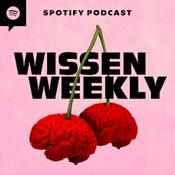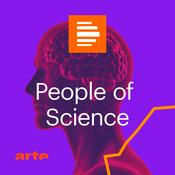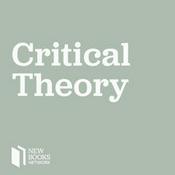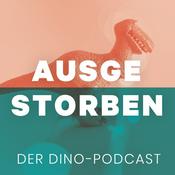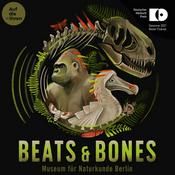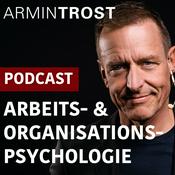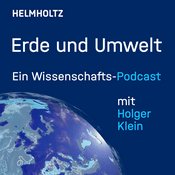69 Episoden
- Behavioural economics can explain an awful lot about how governments, media and businesses can manipulate your day-to-day choices and habitual thinking to their advantage (and your disadvantage!). This new special by your friendly neighbourhood economists Pete and Gav lifts the lid on common heuristics and biases (aka "rules of thumb" or "mental shortcuts") that influence your thinking and ultimately our world. Whether it’s getting you to spend more than you intend to in the shops or being caught up in a Ponzi scheme (or buying an NFT - remember them?) because someone famous and/or beautiful told you to do so - this is a top ten of behavioural economics that may help you catch yourself in time before you take an unfortunate and potentially expensive plunge. Guided by our insights you won’t get caught out again or at least recognise when you need to slow down your thinking to improve your decision-making.
Enjoy Pete and Gav living their dreams of being Top of the Pops DJs as they run down their Top Ten! Technical support comes from Nic, our very own Mark Ronson. - ‘On Liberty’ by JS Mill is beloved by libertarians across the world - it championed the freedom of the individual in the face of growing state power. This individualism is at the heart of orthodox economic thought with Mill's ideas arguably acting as a guard rail against the malign actions of ‘the nanny state’ . However, as we will demonstrate, Mill was a complex thinker whose thinking evolved over time. Mill had an "interesting" childhood with an intellectual hot-housing that a modern day tennis dad would find extreme. Not long out of the nursery he would be constructing Latin poetry, writing commentaries on Greek philosophy and going on long walks in the country where he mused on the thoughts of our old friend David Ricardo. A perhaps inevitable breakdown in early adulthood led to a major change of heart and thought. Mill developed into a wide ranging thinker whose ideas at times can come across as almost socialist, jarring with the more common image of Mill as libertarian champion as beloved by free market think tanks. In this first episode of Season 9, your friendly neighbourhood economists Pete and Gav, discuss the life and times of this stern looking man. As always there is a quiz, some musical suggestions and books galore to hunt down. Technical support as always comes from our good friend Nic.
- Imagine a world where Santa was forced to put shareholder value ahead of spreading joy to millions of children across the world. In this new play by your friendly neighbourhood economists, Pete and Gav, this scenario is explored... and along the way modern day business practices are discussed and the economics of Christmas are "mulled" over. Tensions rise... Will Santa embrace the ‘enshittification’ of Christmas or will he find the true meaning of Christmas once more? Listen to the play and see what you think and try to spot the four Christmas cracker jokes within! Thanks always goes to Nic for sprinkling Christmas magic all over it and to Kate for being the narrator. And thanks to the Bella the Cat for the merciless heckling as the play reaches its climax.
- In 1925, on the 13th October, a daughter was born to Alfred Roberts and his wife Beatrice Stephenson - she was named Margaret Hilda Roberts. The world would get to know her as Mrs Thatcher or ‘The Iron Lady’ and 100 years later, whether you loved or hated her, she is still being discussed and her influence is evident in the economics and politics of today. In this special episode by Pete and Gav, your friendly neighbourhood economists, you will dive into the economics of ‘Thatcherism’ and discover what made her economic world tick! Not only you will learn about MV=PT and the Laffer Curve but you’ll also be able to hear two limericks about her rise and fall and have a go at the obligatory quiz. Technical support comes from Nic, the Norman Tebbit of the team!!!
- In standard economic theory monopolies are generally seen as leading to "sub-optimal outcomes" (they are bad!). However in their own discipline one could argue we have seen one particular approach to economics dominate over recent decades. Is this sub-optimal? One economist in particular, Jayati Ghosh, would argue yes, and point to the negative impacts of having just one "voice" dominate theoretical and policy discussions.
The work of Jayati Ghosh highlights irony and suggests that through this monopolisation, economics finds itself in a situation where few new ideas can emerge that might work more effectively than the current offer, especially in a time of rampant inequality, stagnant growth and global warming. As an Asian, female economist, Ghosh offers a different perspective to many Western economists. She has done some outstanding work focusing on the area of unpaid care work but it doesn’t stop there with numerous and substantial contributions to both macro and microeconomics, particularly in the development sphere. In this fifth episode of season 8 of their award winning podcast, your friendly neighbourhood economists, Pete and Gav explore one of Kate Raworth’s favourite economists - Jayti Ghosh. Not only will you discover a more pluralist approach to the subject but you’ll also find out why, through a rather painful experience, she ended up learning the piano and not the violin, how the James Bond theme relates to the Indian classical raga and a super quiz on all things India. Technical support as always comes from ‘buy-me-a-tortoise’ Nic.
Weitere Wissenschaft Podcasts
Trending Wissenschaft Podcasts
Über Economics In Ten
Economics In Ten is your go-to podcast if you want to learn about the lives, times and ideas of the world's greatest economic thinkers. Each episode is a fun exploration of a famous economist using ten different questions. Presented by Pete and Gav, your friendly neighbourhood economists, with technical support from Nic and music from Jukedeck - create your own at http://jukedeck.com
Podcast-WebsiteHöre Economics In Ten, KI verstehen und viele andere Podcasts aus aller Welt mit der radio.de-App
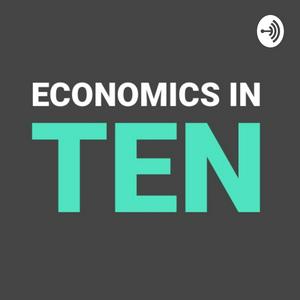
Hol dir die kostenlose radio.de App
- Sender und Podcasts favorisieren
- Streamen via Wifi oder Bluetooth
- Unterstützt Carplay & Android Auto
- viele weitere App Funktionen
Hol dir die kostenlose radio.de App
- Sender und Podcasts favorisieren
- Streamen via Wifi oder Bluetooth
- Unterstützt Carplay & Android Auto
- viele weitere App Funktionen


Economics In Ten
Code scannen,
App laden,
loshören.
App laden,
loshören.











